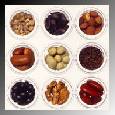Chennai: The central government is seriously thinking of laying down safety standards for food products made out of genetically-modified (GM) foodstuff. Currently, there are no standards for GM foods anywhere in the world.
 Even the Codex Alimentarious Commission has not specified any safety standards for GM foods, says a government official. Codex was set up under the United Nations Food and Agriculture Organisation and the World Health Organisation to evolve standards, codes of practice, specific safety limits and recommendations relating to food production and safety. Even the Codex Alimentarious Commission has not specified any safety standards for GM foods, says a government official. Codex was set up under the United Nations Food and Agriculture Organisation and the World Health Organisation to evolve standards, codes of practice, specific safety limits and recommendations relating to food production and safety.
The governments decision on the aspect gains importance, as lots of food products are now being imported and no one knows what exactly has gone inside them. GM crops are not freely permitted in India.
The government is critically examining Codex standards so that developed countries do not use them as a non-tariff barrier. Off late developed countries, assisted by some agencies, are increasingly using various non-trade barriers to prevent Indian goods reaching their shores.
Notable such measures are preventing carpet imports from India on the ground that they were produced employing child labour. The other example is hindering Indian leather exports citing the crude slaughtering of animals.
Speaking at an international conference on New Technologies in Ensuring Safe and Nutritional Food organised by the Confederation of Indian Food Trade and Industry (the food wing of FICCI) in Chennai recently, D P Tripathi, union food processing industries ministry secretary, said an authority will be formed to work on harmonising the domestic food standards with that of Codex. "The government will first try to harmonise the domestic food safety standards with that of international ones and later with various food laws."
Food safety in India comes under different governmental agencies and laws. Some of them are: Milk and Milk Products Order, Prevention of Food Adulteration Act, Bureau of Indian Standards, Agmark and Export Inspection Council (in case of food exports). "We are not going to follow Codex blindly. But India is taking an active interest in Codex and it will narrow down the gap between Codex and Indian regulations," said Dr S R Gupta, union health ministry joint-secretary.
On Indias response to Codex, EIC director Dr Sashi Sareen said: "The first step is to harmonise the standards prescribed by different domestic agencies to formulate one single national standard. As the concept of equivalence being recognised and encouraged in the World Trade Organisations Sanitary and Phytosanitary Measures, EIC on its part is emphasising on the development of an equivalence agreement with major trading partners.
"This will serve as an important means of facilitating trade by recognition of our standards and our certification systems to provide for an equivalent level of protection against health risks as those of the importing countries. It will also avoid duplication of testing and reduce rejection rates," she added.
India will soon sign an equivalence agreement with Australia in respect of dairy products. Sareen says EIC is building a database on the regulatory requirements of various food-importing countries to help Indian exporters. "We will also upgrade our test lab at an outlay of Rs 2 crore."
One uniform complaint that different government agencies have against the domestic food sector is their lacking in providing critical inputs to the government for taking up issues at the international forum.
|
|